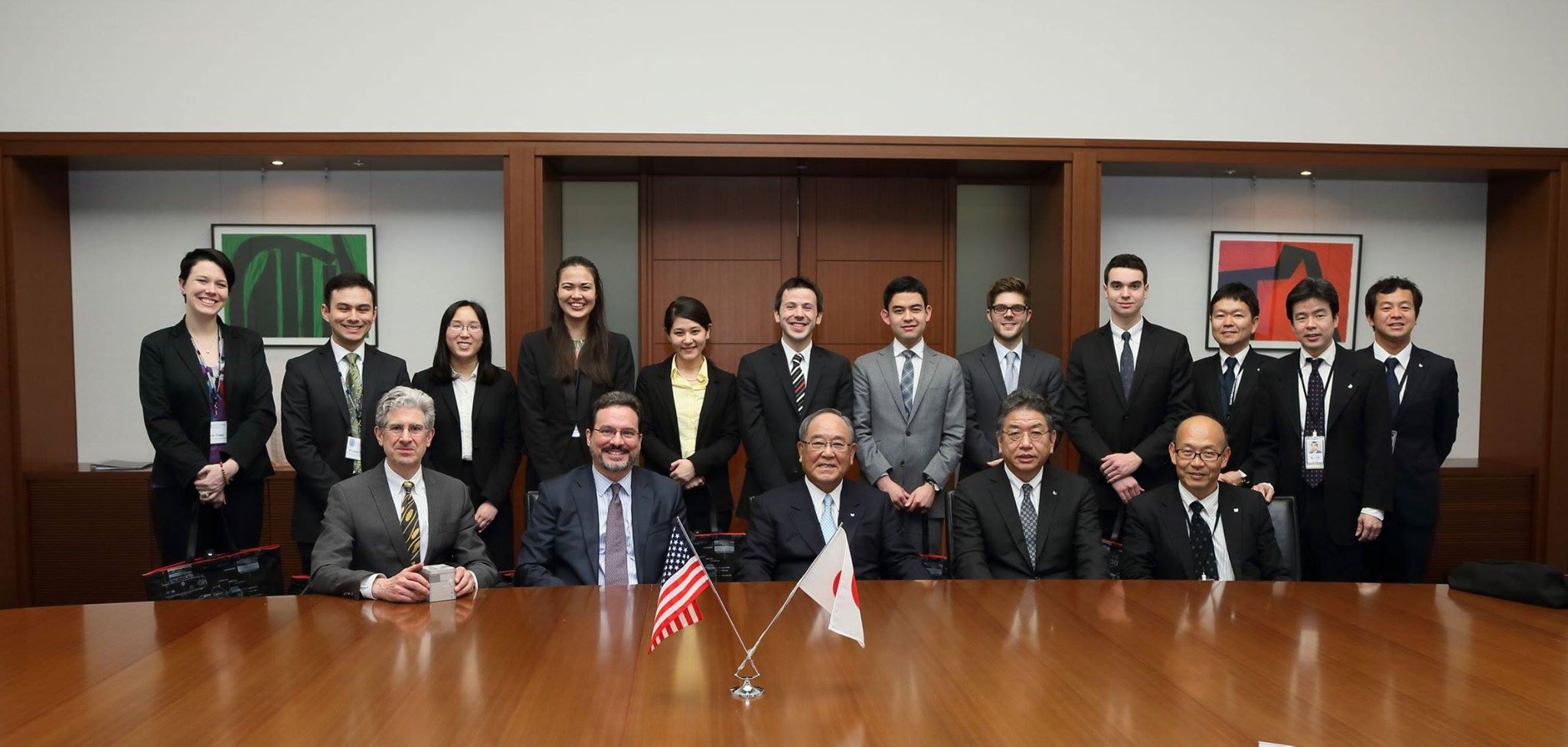Georgetown University has begun conversations with the Japanese government about a potential $5 million dollar grant that would establish the first-ever endowed chair in Japanese Studies at Georgetown’s School of Foreign Service. Japan’s final decision whether to give Georgetown the grant will come in April after Japan’s 2015-2016 budget is determined.
“Discussions initiated last fall at the initiative of the Japanese government and they were advanced when President DeGioia visited Tokyo last fall. We’re now in discussions with the embassy to finalize the terms,” SFS Senior Associate Dean James Reardon-Anderson said.
According to Director of Asian Studies Victor Cha, the grant would allow the university to seek out and recruit “the best faculty in the world” to fill the chair.
“[Chaired professors] teach, obviously, but through their research and other activities, they become a focal point of activities on issues related to Japan, US-Japan relations, and whatever functional speciality they have,” Cha said. According to Reardon-Anderson, the professor would specialize in Japanese government and international affairs.
The conversations between Georgetown and the Japanese government over the grant coincide with funding by the Ministry of Foreign Affairs for a recent spring break trip for select Georgetown students to visit Tokyo, modeled after the Fulbright Program. While two chaired professorships at Georgetown currently focus on Korea and one on China-Taiwan, the Japanese Studies department has never seen a similar endowment. According to Arthur Alexander, adjunct professor of Japanese economics at Georgetown, Japanese Prime Minister Shinzo Abe’s interest in promoting Japanese Studies at American universities is part of a soft-power initiative to promote Japan’s national image and to compete with the growing popularity of China.
According to Alexander, Japan’s efforts to collaborate with American universities have generated suspicion that the Abe administration is seeking to promote an idealized view of Japan in foreign countries. Alexander pointed to a recent instance in which the Japanese requested that McGraw Hill Education revise its account of women in military brothels in a textbook.
“They have to be particularly careful here, and what turns out as positive program could become negative if they operate it with a heavy hand,” Alexander said.
Georgetown faculty, however, is not concerned about the possibility of ideological control over the use of the endowment. Should Georgetown be confirmed for the grant, the role of the Japanese government would be limited to selecting the general purpose of the chair—in this case, government and international affairs.
Likening the process to a firewall, Cha explained that a clause in Georgetown’s gift agreements ensures that the university retains exclusive right over the choice of hire or content of research conducted with external funding.
“Suppose we were selected, and we did a search, and we hired somebody who was a critical social historian of Japan, and that person wrote about the intellectual history of Japan’s efforts to whitewash what happened in World War II. The Japanese would have no say over that if we thought that was the best scholar,” Cha said. The university, he explained, has not yet had any cases of donors seeking to manipulate the research conducted through similar endowments.
Other universities considered being considered for the grant include Columbia University and the Massachusetts Institute of Technology. According to Cha, Georgetown is in the running for the grant due to the Asian Studies program’s nationwide prominence.
“Our Japan Studies and our Asian studies more generally has been seen as one of the fastest rising and most dynamic Asian Studies programs in the country right now,” Cha said.
The Asian study program’s growth began in 2006, roughly coinciding with the pivot toward Asia. Following former Dean Bob Gallucci’s bottom-up study to expand the program, the department hired new faculty, created a graduate master’s certificate and then a master’s degree, and was soon designated a Title VI Resource Center for Asia and a Foreign Language and Area Studies Program.
While funding for FLAS fellowships has been recently renewed and increased, Georgetown’s federal funding from Title VI will be terminated in June due to federal budget cuts to higher education.
“The important thing is that we got increased funding for our students,” Cha said. “[This] will continue to enable us to train the next generation of US-based Asia specialists and the next generation of Asia specialists around the world.”






